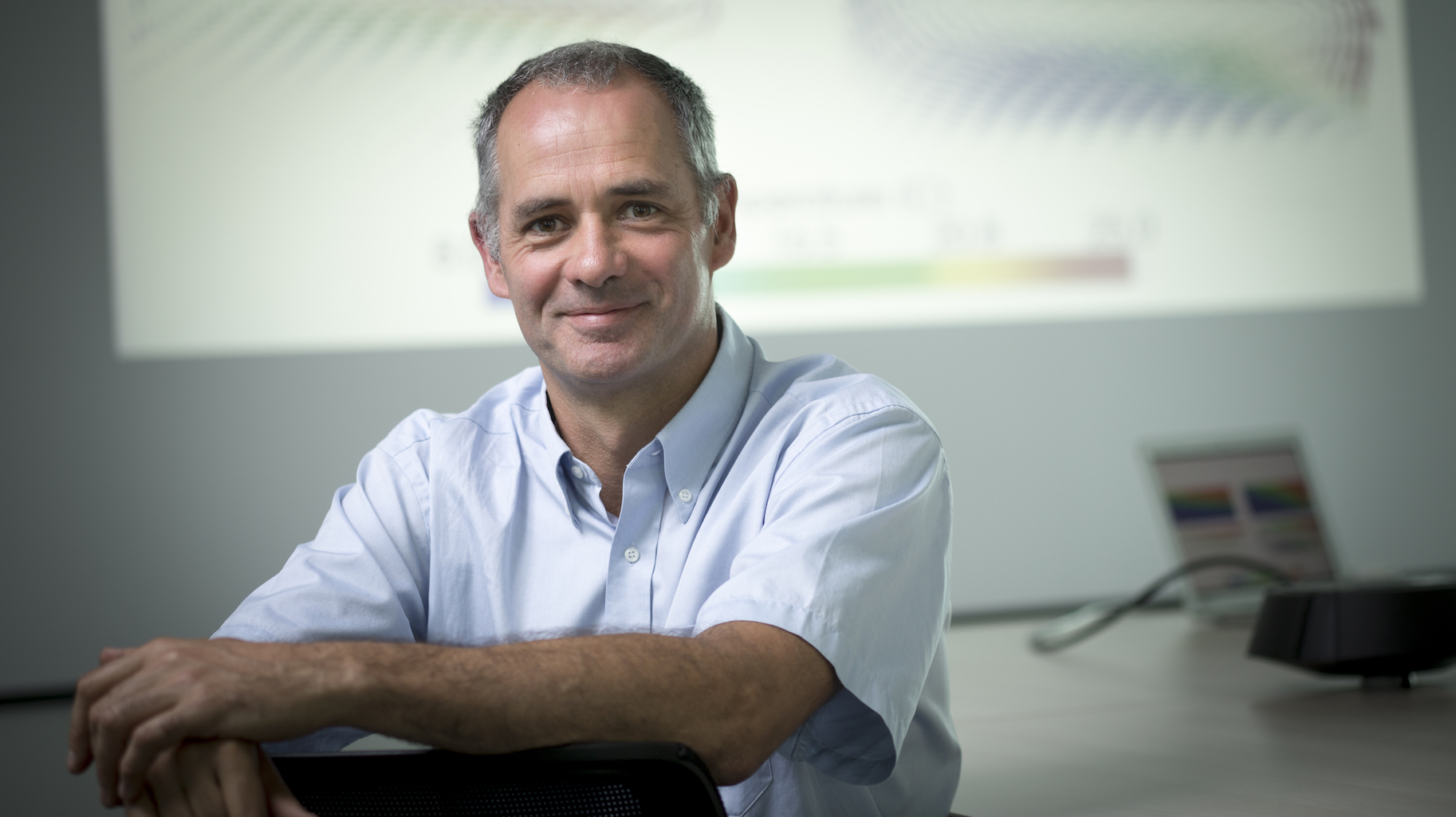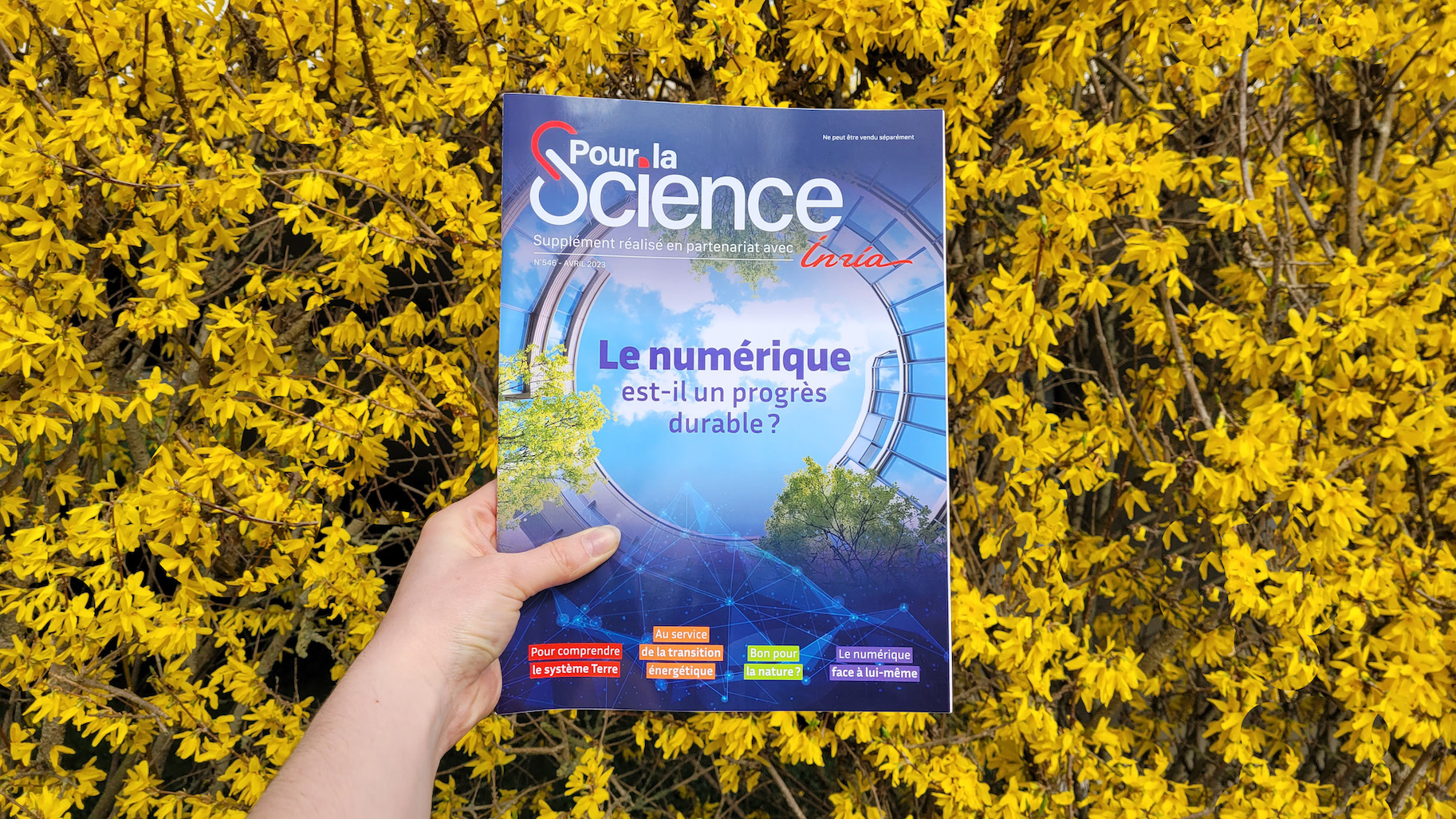Poste
- Any - 2023 - Makutu project-team Directeur général de l'Afnic, de la création de l'association jusqu'en 2005 Méthodes générales d’apprentissage par curiosité et leurs applications 2007 - Alice project-team 2007 - Asap project-team 2008 - Bacchus project-team 2008 - Gemo project-team 2008 - Neuromathcomp project-team 2009 - Bamboo project-team 2009 - Erable project-team 2009 - Flowers project-team 2009 - Sierra project-team 2010 - Alf project-team 2010 - Cortex project-team 2010 - Galen project-team 2010 - Geometrica project-team 2010 - Moscova project-team 2010 - Opale project-team 2010 - VideoWorld project-team 2011 - Abstraction project-team 2011 - Alice project-team 2011 - Asclepios project-team 2011 - Bang project-team 2011 - Imagine project-team 2011 - Ipso project-team 2011 - Lfant project-team 2011 - Metiss project-team 2011 - Nano-D project-team 2011 - Parsifal project-team 2011 - Willow project-team 2012 - Alice project-team 2012 - Gallium project-team 2012 - In-Situ project-team 2012 - Lear project-team 2013 - ASAP project-team 2013 - Geometrica project-team 2013 - Perception project-team 2013 - Robotlearn project-team 2013 - TexMex project-team 2013 - Willow project-team 2014 - Ascola project-team 2014 - BiPoP project-team 2014 - Cascade project-team 2014 - Cassis project-team 2014 - Larsen project-team 2014 - Numed project-team 2014 - Pomdapi project-team 2015 - Alice project-team 2015 - Aramis project-team 2015 - Athena project-team 2015 - Ex-Situ project-team 2015 - Magnet project-team 2015 - Parietal project-team 2015 - Prosecco project-team 2015 - Siroco project-team 2016 - Cedar project-team 2016 - Geco project-team 2016 - GraphDeco project-team 2016 - Potioc project-team 2016 - Prosecco project-team 2016 - Secret project-team 2016 - Sierra project-team 2016 - Thoth project-team 2016 - Veridis project-team 2017 - Athena project-team 2017 - Epione project-team 2017 - GraphDeco project-team 2017 - Opale project-team 2017 - Perception project-team 2017 - Senior Researcher 2018 - Alpines project-team 2018 - Antique project-team 2018 - Comete project-team 2019 - Aramis project-team 2019 - Cascade project-team 2019 - Opis project-team 2019 - Reo project-team 2019 - Senior Researcher 2019 - Stuod project-team 2020 - Gallinette project-team 2020 - Sierra project team 2020 - Sierra project-team 2021 - Cosmiq project-team 2021 - Prosecco project-team 2021 - Quantic project-team 2021 - Sierra project-team 2021 - Specfun project-team 2022 - InBio project-team 2022 - Thoth project-team 2023 - Cardamom project-team 2023 - Castor project-team 2023 - Membre de l'équipe-projet Castor 2023 - Potioc project-team 2024 - GraphDeco project-team Accounting Officer Acting Director of the Research Centre Adjoint au directeur scientifique d'Inria Agent comptable Améliorer l’intégration de données Analyse mathématique des réseaux de neurones Ancienne directrice de recherche Inria - ACM Fellow 2016 Better classification of neuroscience data Bruno Lévy, Director of the Nancy - Grand Est research centre CEO Chargé de mission auprès de la direction générale Chargé de recherche Chargé de recherche - Equipe-projet Athena LAUREAT 2017 - Chargé de recherche au centre Inria de l’université de Bordeaux Chargé de recherche au centre Inria de l’université de Bordeaux - LAUREAT 2016 Chargé de recherche au sein de l'équipe-projet Pariétal Chargé de recherche au sein de l’équipe-projet Athena au centre Inria d’Université Côte d’Azur Chargé de recherche au sein de l’équipe-projet Épione Chargé de recherche junior Chargé de recherche, équipe-projet Wimmics Chargé de recherches - équipe-projet GraphDeco Chargé de recherches au sein de l’équipe Aramis Chargée d'affaires européennes Inria Chargée de la Mission Stratégie territoriale Chargée de mission auprès du PDG pour le développement de l’axe du COP « politique de site » Chargée de recherche Chargée de recherche, équipe LARSEN Chargée de recherche, équipe Stars Chargée de recherche, équipe-projet Castor Chargée des partenariats et innovation Chef de projet Chef de projet Scikit-learn chercheur Chercheur au sein de l’équipe-projet VeriDis Chercheur postdoctoral Inria Chercheuse Chercheuse postdoctorante Chercheuse postdoctorante Chercheuse postdoctorante - Inria Co-directeur d’Inria Startup Studio Co-director of Inria Startup Studio Co-directrice d’Inria Startup Studio Collège de France Professor - Cambium project team – ACM Fellow 2015 Communications Director Connecter les informations par-delà la barrière des supports Connecting information beyond the barrier of media Conseiller auprès du président d'Inria Coordinateur du projet open source SOFA Coordinatrice de projet européen Data geometry: moving towards a new level of meaning Deputy CEO for Administration Deputy CEO for Administration Deputy CEO for Administrative, Financial and Wealth Management Affairs Deputy CEO for Innovation Deputy CEO for Public Affairs Deputy CEO for Science Deputy Director General for Innovation Directeur de centre Directeur de l'Inria Academy Directeur de l'organisation et de la transformation Directeur de la communication Directeur de la culture et de l’information scientifiques Directeur de la mission Inria de coordination du plan IA Directeur de recherche Directeur de recherche - Equipe-projet CASSIS - Inria Nancy - Grand Est Directeur de recherche - Equipe-projet Pomdampi Directeur de recherche - Équipe-projet Titane directeur de recherche au centre de Sophia Antipolis - Méditerranée dans l'équipe Epione Directeur de recherche au centre Inria de Saclay Directeur de recherche au centre Inria de Saclay Directeur de recherche de classe exceptionnelle au centre Inria d’Université Côte d’Azur Directeur de recherche de classe exceptionnelle au centre Inria d’Université Côte d’Azur, responsable de l'équipe-projet Athena Directeur de recherche de l'équipe-projet COMMEDIA et directeur scientifique du centre Inria de Paris Directeur de recherche de l’équipe EVA et cofondateur de Falco Directeur de recherche de l’équipe-projet EVA Directeur de recherche Inria au centre de Sophia Antipolis - Méditerranée, responsable de l'équipe GraphDeco Directeur de recherche Inria et responsable de l'équipe-projet Prosecco Directeur de recherche – Équipe-projet Pacap – ACM Fellow 2016 Directeur de recherche – Équipe-projet Valda – ACM Fellow 2011 Directeur de recherche – Équipe-projet Zenith – ACM Fellow 2012 Directeur des affaires administratives, financières et patrimoniales Directeur des opérations pour la DGDI Directeur des opérations pour la Direction générale déléguée à l'innovation Directeur des systèmes d'information Directeur du centre Directeur du centre de recherche Directeur du centre Inria de l'Université de Lille Directeur du centre Inria de l'Université de Lorraine Directeur du centre Inria de Lyon Directeur du centre Inria de Lyon Directeur du centre Inria de l’université de Bordeaux Directeur du centre Inria de l’université de Bordeaux Directeur du centre Inria de l’Université de Lille Directeur du centre Inria de l’Université de Rennes Directeur du centre Inria de l’Université Grenoble Alpes Directeur du centre Inria de Paris Directeur du centre Inria de Paris Directeur du centre Inria de Paris Directeur du centre Inria de Saclay Directeur du centre Inria de Saclay Directeur du centre Inria Nancy - Grand Est Directeur général délégué à l'administration Directeur général délégué à la science Directeur général délégué à l’innovation Directeur par intérim du centre de recherche Director of European Partnerships Director of Human Resources Director of Inria Chile Director of International Relations Director of Legal Affairs Director of Organisation and Transformation Director of Public Affairs Director of research - Project-team Titane Director of research of the EVA research team Director of Scientific Culture and Information Director of the Defense Security Mission Director of the Information Systems Department Director of the Inria centre at Grenoble Alpes University Director of the Inria centre at Grenoble Alpes University Director of the Inria centre at Rennes University Director of the Inria centre at the University of Bordeaux Director of the Inria centre at the University of Lille Director of the Inria centre at Université Côte d’Azur Director of the Inria centre research at the University of Lille Director of the Inria Lyon Centre Director of the Inria Lyon Centre Director of the Inria mission to coordinate Plan IA Director of the Inria Nancy - Grand Est Centre Director of the Inria of Paris centre Director of the Inria Saclay Centre Directrice d'Inria Chile Directrice de la communication Directrice de la Mission Défense et Sécurité Directrice de recherche - Équipe-projet Ex-Situ – ACM Fellow 2019 Directrice de recherche chez Inria Directrice de recherche chez Inria et responsable de l’équipe-projet Alpines Directrice de recherche et responsable de l’équipe de recherche Sirocco au centre Inria de l’Université de Rennes Directrice de recherche, équipe-projet Cedar Directrice des affaires administratives, financières et patrimoniales Directrice des affaires juridiques Directrice des affaires publiques Directrice des partenariats européens Directrice des relations internationales Directrice des ressources humaines Directrice du centre Directrice du centre de recherche Directrice du centre Inria de l’Université de Lille Directrice du centre Inria de l’Université de Lille Directrice du centre Inria d’Université Côte d’Azur Directrice du centre Inria d’Université Côte d’Azur Directrice du centre Inria d’Université Côte d’Azur Directrice exécutive de l’Agence de programmes Directrice générale déléguée à l'appui aux politiques publiques Doctorant, Équipe Coati, Sophia Antipolis Drawing statistical meaning from brain data Économiser les ressources sans perdre en puissance d’analyse Enseignant-chercheur – ACM Fellow 2020 Equipe-projet Cedar Équipe-projet Marelle Équipe-projet McTao Équipe-projet Premedical Equipe-projet Scmol Équipe-projet Stam Équipe-projet Stamp European project coordinator Executive Director of the Programmes Agency FabManager, Humanlab, Institut Saint-Pierre, Responsable Recherche & Développement Fiabiliser et sécuriser les réseaux de neurones For further information about recruiting people with disabilities For further information about the "researchers with disabilities" campaign For information about recruiting people with disabilities For information on disability at Inria For information on recruitment Former Senior Researcher - ACM Fellow 2016 General methods for curiosity-driven machine learning and their applications GraphDeco project-team Head of Inria Chile Head of the Camin research team Head of the Camin research team and scientific coordinator of the project Head of the COMMEDIA project-team & Head of Science at the Inria Paris Centre Head of the Cronos team Head of the research centre Improving data integration Ingénieur de recherche Ingénieure en automatique, SUP AERO Ingénieurs système dans le projet CAO-VLSI Inria Academy Manager Inria Junior researcher Inria postdoctoral fellow Inria Senior researcher Inventer les outils de traitement des images de demain Inventing the image processing tools of tomorrow Junior Fellow in AI La géométrie des données : vers un nouveau niveau de sens LAUREAT 2007 - Membre de l'équipe-projet Alice LAUREAT 2007 - Membre de l'équipe-projet Asap LAUREAT 2008 - Membre de l'équipe-projet Bacchus LAUREAT 2008 - Membre de l'équipe-projet Gemo LAUREAT 2008 - Membre de l'équipe-projet Neuromathcomp LAUREAT 2009 - Membre de l'équipe-projet Bacchus LAUREAT 2009 - Membre de l'équipe-projet Bacchus LAUREAT 2009 - Membre de l'équipe-projet Flowers LAUREAT 2009 - Membre de l'équipe-projet Sierra LAUREAT 2010 - Membre de l'équipe-projet Alf LAUREAT 2010 - Membre de l'équipe-projet Cortex LAUREAT 2010 - Membre de l'équipe-projet Galen LAUREAT 2010 - Membre de l'équipe-projet Geometrica LAUREAT 2010 - Membre de l'équipe-projet Moscova LAUREAT 2010 - Membre de l'équipe-projet VideoWorld LAUREAT 2010 - Membre de l'équipe-projet Willow LAUREAT 2011 - Membre de l'équipe-Projet Asclepios LAUREAT 2011 - Membre de l'équipe-projet Lfant LAUREAT 2011 - Membre de l'équipe-projet Lfant LAUREAT 2011 - Membre de l'équipe-projet Lfant LAUREAT 2011 - Membre de l'équipe-projet Metiss LAUREAT 2011 - Membre de l'équipe-projet Parsifal LAUREAT 2011 - Membre de l'équipe-projet Willow LAUREAT 2011 - Membre de l'équipe-projet Willow LAUREAT 2011 - Membre de l’équipe-projet Abstraction LAUREAT 2011 - Membre de l’équipe-projet Alice LAUREAT 2011 - Membre de l’équipe-projet Alice LAUREAT 2011 - Membre de l’équipe-projet Ipso LAUREAT 2011 - Membre de l’équipe-projet Nano-D LAUREAT 2011 - Responsable de l'équipe-projet LAUREAT 2012 - Membre de l'équipe-projet Alice LAUREAT 2012 - Membre de l'équipe-projet Gallium LAUREAT 2012 - Membre de l’équipe-projet Alice LAUREAT 2013 - Membre de l'équipe-projet Alice LAUREAT 2013 - Membre de l'équipe-projet Geometrica LAUREAT 2013 - Membre de l'équipe-projet Perception LAUREAT 2013 - Membre de l'équipe-projet Robotlearn LAUREAT 2013 - Membre de l'équipe-projet Simpaf LAUREAT 2013 - Membre de l'équipe-projet Texmex LAUREAT 2013 - Membre de l'équipe-projet Willow LAUREAT 2014 - Membre de l'équipe-projet Ascola LAUREAT 2014 - Membre de l'équipe-projet Cascade LAUREAT 2014 - Membre de l'équipe-projet Cassis LAUREAT 2014 - Membre de l'équipe-projet Pomdapi LAUREAT 2014 - Membre de l’équipe-projet Larsen LAUREAT 2014 - Membre de l’équipe-projet Numed LAUREAT 2015 - Membre de l'équipe-projet Alice LAUREAT 2015 - Membre de l'équipe-projet Athena LAUREAT 2015 - Membre de l'équipe-projet Magnet LAUREAT 2015 - Membre de l'équipe-projet Parietal LAUREAT 2015 - Membre de l'équipe-projet Prosecco LAUREAT 2015 - Membre de l'équipe-projet Prosecco LAUREAT 2015 - Membre de l'équipe-projet Prosecco LAUREAT 2015 - Membre de l’équipe-projet Aramis LAUREAT 2015 - Membre de l’équipe-projet Ex-Situ LAUREAT 2016 - Chargé de recherche - Centre Inria de l’université de Bordeaux LAUREAT 2016 - Membre de l'équipe-projet Geco LAUREAT 2016 - Membre de l'équipe-projet GraphDeco LAUREAT 2016 - Membre de l'équipe-projet GraphDeco LAUREAT 2016 - Membre de l'équipe-projet Magnet LAUREAT 2016 - Membre de l'équipe-projet Potioc LAUREAT 2016 - Membre de l'équipe-projet Prosecco LAUREAT 2016 - Membre de l'équipe-projet Prosecco LAUREAT 2016 - Membre de l'équipe-projet Sierra LAUREAT 2016 - Membre de l’équipe-projet Sierra LAUREAT 2016 - Membre de l’équipe-projet Sierra LAUREAT 2016 - Membre de l’équipe-projet Thoth LAUREAT 2016 - Membre de l’équipe-projet Thoth LAUREAT 2016 - Membre de l’équipe-projet VeriDis LAUREAT 2016 - Membre de l’équipe-projet VeriDis LAUREAT 2017 - Chargé de recherche LAUREAT 2017 - Directeur de recherche LAUREAT 2017 - Membre de l'équipe-projet Athena LAUREAT 2017 - Membre de l'équipe-projet Epione LAUREAT 2017 - Membre de l'équipe-projet GraphDeco LAUREAT 2017 - Membre de l'équipe-projet Perception LAUREAT 2017 - Membre de l'équipe-projet Perception LAUREAT 2018 - Membre de l'équipe-projet Antique LAUREAT 2019 - Directeur de recherche LAUREAT 2019 - Membre de l'équipe-projet Cascade LAUREAT 2019 - Membre de l'équipe-projet Quantic LAUREAT 2019 - Membre de l’équipe-projet Aramis LAUREAT 2019 - Responsable du projet Stuod Lauréat 2020 - Membre de l'équipe-projet Sierra LAUREAT 2020 - Membre de l'équipe-projet Sierra LAUREAT 2021 - Membre de l'équipe-projet Cosmiq LAUREAT 2021 - Membre de l'équipe-projet PROSECCO LAUREAT 2021 - Membre de l'équipe-projet Quantic LAUREAT 2021 - Membre de l'équipe-projet Quantic LAUREAT 2021 - Membre de l'équipe-projet Sierra LAUREAT 2021 - Membre de l'équipe-projet Specfun LAUREAT 2022 - Membre de l'équipe-projet InBio LAUREAT 2022 - Responsable de l'équipe-projet Thoth LAUREAT 2023 - Membre de l'équipe-projet Cardamom LAUREAT 2023 - Membre de l'équipe-projet Castor LAUREAT 2023 - Membre de l'équipe-projet Makutu LAUREAT 2023 - Membre de l'équipe-projet Potioc LAUREAT 2024 - Membre de l'équipe-projet GraphDeco LAUREATE 2007 - Membre de l'équipe-projet Asap LAUREATE 2009 - Membre de l'équipe-projet Bamboo LAUREATE 2009 - Responsable de l'équipe-projet Erable LAUREATE 2010 - Membre de l'équipe-projet Cassis LAUREATE 2010 - Membre de l'équipe-projet Opale LAUREATE 2011 - Membre de l'équipe-projet Bang LAUREATE 2011 - Membre de l'équipe-projet Imagine LAUREATE 2012 - Membre de l'équipe-projet In-Situ LAUREATE 2012 - Membre de l'équipe-projet Lear LAUREATE 2013 - Membre de l'équipe projet ASAP LAUREATE 2014 - Membre de l’équipe-projet BiPoP LAUREATE 2015 - Membre de l'équipe-projet Siroco LAUREATE 2016 - Membre de l'équipe-projet Bang LAUREATE 2016 - Membre de l’équipe-projet Cedar LAUREATE 2016 - Membre de l’équipe-projet Secret LAUREATE 2017 - Membre de l'équipe projet Opale LAUREATE 2018 - Membre de l'équipe-projet Alpines LAUREATE 2018 - Membre de l'équipe-projet Alpines LAUREATE 2018 - Membre de l’équipe-projet Comete LAUREATE 2019 - Member of the Opis project team(903) LAUREATE 2019 - Membre de l'équipe-projet Opis LAUREATE 2019 - Membre de l'équipe-projet Reo LAUREATE 2020 - Membre de l'équipe-projet Gallinette LAUREATE 2023 - Membre de l'équipe-projet Cardamom LAUREATE 2023 - Membre de l'équipe-projet COSMIQ LAURETATE 2016 - Membre de l’équipe-projet Secret Maître de conférences, équipe CHROMA maitre de l'univers Making AI services available to as many people as possible Making neural networks secure and reliable Marelle Project-team Mathematical analysis of neural networks Maureen Clerc, Director of the nria centre at Université Côte d’Azur Membre de l'équipe projet Bang Membre de l'équipe projet Texmex Membre de l'équipe-projet ALF Membre de l'équipe-projet Ascola Membre de l'équipe-projet Bacchus Membre de l'équipe-projet Bamboo Membre de l'équipe-projet Cascade Membre de l'équipe-projet Gemo Membre de l'équipe-projet Prosecco Membre de l'équipe-projet Simpaf Membre de l'équipe-projet Willow Membre de l’équipe EX-SITU Membre de l’équipe Inria Modélisation numérique en médecine Membre de l’équipe Secret - Laureate 2016 Membre de l’équipe Secret du centre Inria de Paris Membre de l’équipe-projet BiPoP Membre de l’équipe-projet Thoth Mieux classifier les données de neurosciences PhD, Coati team, Sophia Antipolis Philips - Directeur hub IA Paris et recherche France Policy advisor to the CEO - HEI liaison Postdoctoral researcher Postdoctorant Pour tout renseignement concernant le recrutement de personnes en situation de handicap PreMediCal Project team PreMedICaL team leader Président-directeur général Professeur au Collège de France - Équipe-projet Cambium – ACM Fellow 2015 Professional Education Officer in charge of the creation of Inria Academy Project-team McTao Project-team Premedical Prouver la sécurité des protocoles cryptographiques Proving the security of cryptographic protocols Rendre les services de l'IA accessibles au plus grand nombre Research Engineer Researcher Researcher within the Epione project team Researcher, Stars Researchers - GraphDeco project-team Responsable Commission Parité Responsable de l'action exploratoire Ayana Responsable de l'action exploratoire Cactus Responsable de l'action exploratoire Mammals Responsable de l'équipe Camin Responsable de l'équipe Cronos Responsable de l'équipe de recherche Camin et coordinatrice scientifique du projet Responsable de l'équipe de recherche Inria Nano-D et cofondateur et président de OneAngstrom Responsable de l'équipe PreMedICaL Responsable de l'équipe-projet Geometrica Responsable de l'équipe-projet IMAGINE Responsable de l'équipe-projet LEAR Responsable de l'équipe-projet Neuromathcomp Responsable de l’équipe de recherche Perception au centre Inria de l’Université Grenoble Alpes Responsable de l’équipe-projet Antique Responsable de l’équipe-projet Sierra au centre Inria de Paris Responsable des ressources humaines Responsable du nouveau projet SoBaSyC, et membre de l'équipe-projet Cosmiq du Centre Inria de Paris Responsable Inria Academy Responsable Recherche & Développement, FabManager, Humanlab, Institut Saint-Pierre Responsable relations presse Responsible for the Ayana exploratory action Responsible for the Cactus exploratory action Saving on resources without losing analytical power Scikit-learn project manager Senior researcher Senior researcher Senior researcher - Ex-Situ project team – ACM Fellow 2019 Senior researcher - GraphDeco team-project Senior Researcher - Valda project team - ACM Fellow 2011 Senior researcher – Pacap project team – ACM Fellow 2016 Senior researcher – Zenith project team – ACM Fellow 2012 SOFA open source project coordinator SOFA project manager Stamp Project-team Teacher-researcher – ACM Fellow 2020 Team leader of the Perception at the Inria centre at Grenoble Alpes University Tirer du sens statistique des données cérébrales


